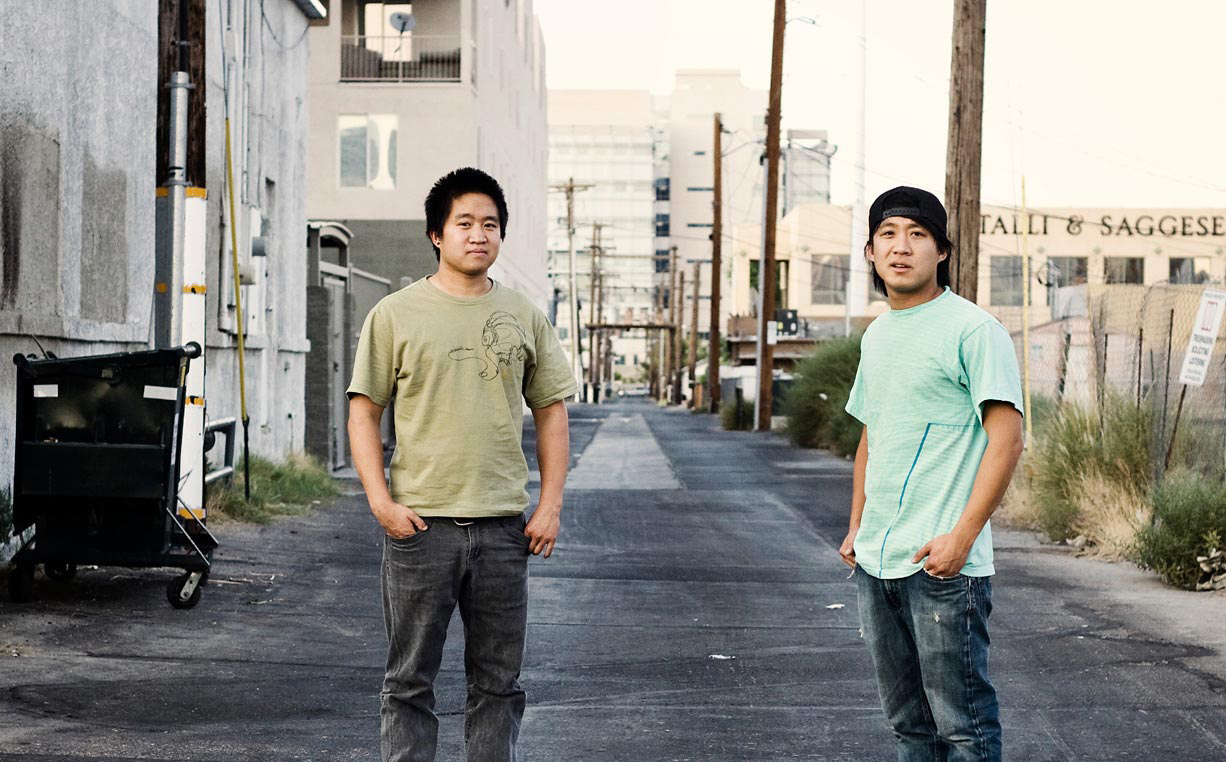When Austin Chu, 25, was laid off from a Bay Area Internet startup in December of 2008, he did what many Californians might do: he went surfing every day, made plans to travel across the country to film a documentary, and diligently sent out a flurry of applications for PR and marketing positions.
As Chu discussed documentary plans with his 23-year-old brother Brian — what if they made something different from all the dark, disaster- oriented coverage? — companies started calling him for interviews. One offered him a job.
“If there’s a window of opportunity, you have to jump through,” Austin says. “It’s like, you see a girl in a bar and you make eye contact. If you don’t go then, it’s over. You won’t get another chance.”
He turned the job down. Brian followed suit by quitting his full-time job editing fitness videos, and in January of 2009, the two left on a self-financed six-month trip across the United States.
That September, the Chus were ready to debut the result, an abbreviated 10-minute version of their 68-minute documentary, The Recess Ends, at the Blackout Film Festival in New York. Austin confessed to nerves. Their film was headlining, and they’d never headlined anything, or appeared in a film festival, or even made a movie before.
But they felt good about the cut, which featured a man gleefully hunting a wild boar and boasting that he wouldn’t go hungry as he slit its belly. In another scene, a community organizer drove through dilapidated neighborhoods in Youngstown, Ohio, cheered that economically depressed residents finally felt empowered to do something about their situation.
The Blackout Film Festival had previously asked filmmakers to respond to the theme of the Great Recession. When the entries started rolling in, founder Tom Keefe was pleasantly surprised to find that most were lighthearted, optimistic, even fun.

